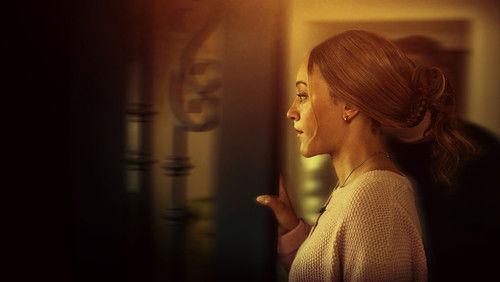Meu Nome Não é Johnny (2008)
52KMeu Nome Não é Johnny: Directed by Mauro Lima. With Selton Mello, Giulio Lopes, Júlia Lemmertz, Felipe Severo. The true story of João Guilherme Estrella (“Johnny”), a young middle-class bon vivant who became a big-time cocaine dealer in Rio de Janeiro in the early 1990s.
“Fast, hip and mod film adaptation of the true story of João Guilherme Estrella, an upper-middle-class dope-head who turned into serious addict and, against all odds, a top cocaine dealer in Rio de Janeiro in the early 1990s. The film follows his glamorized coke-snorting glory days and his later detention, trial, imprisonment and subsequent confinement in a state institution for mentally disturbed criminals. Based on the biography written by Guilherme Fiúza that provides most of the filmu0026#39;s light tone and funny dialog, the film is a comedy — yes, a comedy! — about drug addiction and dealing, in the line of Ted Demmeu0026#39;s u0026quot;Blowu0026quot; and particularly influenced by the episodic structure, pop flavor and sense of humor of Paul Thomas Andersonu0026#39;s u0026quot;Boogie Nightsu0026quot;.u003cbr/u003eu003cbr/u003eThe u0026quot;riseu0026quot; of Estrella in the drug world is made to look sexy, cool, adventurous and a lot of fun, though it isnu0026#39;t exactly believable — his drug connections are never satisfactorily explained, probably because itu0026#39;s still legally dangerous to dot all the u0026quot;iiu0026quot;. Anyway, itu0026#39;s obvious the filmmakers arenu0026#39;t interested in u0026quot;denouncingu0026quot; Riou0026#39;s drug business, but in audience adhesion and laughter: even Estrellau0026#39;s sojourn in prison and in the appalling mental institution are meant to be funny, instead of depressing and scary, and the long sequence of Estrella being harassed and blackmailed by two corrupt cops seems inspired by the antics of Abbott u0026amp; Costello or Oscarito u0026amp; Grande Otelo.u003cbr/u003eu003cbr/u003eThe film is totally centered around Selton Mello, who finds in the part of Estrella the perfect vehicle for his peculiar cinematic persona: ironic, funny, non-chalant, quick-spoken, Mello acts as if heu0026#39;s ad-libbing and is the right choice for this kind of role, though possibly with the wrong physique (itu0026#39;s hard to believe that a man who admittedly sniffed up to 100 grams of coke per week could look this chubby — but the real Estrella IS chubby, at least nowadays). The rest of the cast varies from fine (veteran Eva Todor, Cássia Kiss, Orã Figueiredo, the lovely and talented Rafaella Mandelli), to insipid (clueless Cléo Pires, whose role is fortunately rather small), from weird (Júlia Lemmertz plays Selton Mellou0026#39;s mother!) to over the top (Flavio Bauraqui and Aramis Trindade overacting once again).u003cbr/u003eu003cbr/u003eMauro Limau0026#39;s direction shows assuredness and objectivity — heu0026#39;s not a technique freak but there are some exciting dolly shots — though the film would certainly benefit from a bigger budget and longer schedule (there are sequences in Barcelona and Venice that seem made in a terrible hurry). Lima and producer Mariza Leão wrote the clever script aiming at young audiences used to sitcoms and comic strips; well, the jokes do work and the dialog is above TV average, though the tear-jerking trial scene is longish and maudlin.u003cbr/u003eu003cbr/u003eThere are big issues that the film doesnu0026#39;t really want to discuss, like the fact that Estrella could play for laughs because, being white and middle-class, he knew he would come out alive and free from his failed drug-lord fantasy (whereas black and poor traffickers get dead or rot in prison). Or the fact that, though the film is being (mis)marketed as a u0026quot;cautionary storyu0026quot; for teenagers who might be curious about experimenting with drugs, itu0026#39;s rather a u0026quot;feel-goodu0026quot; drug movie that isnu0026#39;t really meant to warn or scare drug neophytes or anyone else, especially because of Selton Mellou0026#39;s u0026quot;coolu0026quot; demeanor and the happy-ending. On the contrary: I suspect many teenagers leave the theater with the idea that coke-snorting mustnu0026#39;t be all THAT bad (and we know, donu0026#39;t we, that coke has made its comeback). Despite the potentially violent and tragic overtones of the theme, the ultimate goal of the film is to be fun, cool and hip — and that, u0026quot;Johnnyu0026quot; undoubtedly succeeds.u003cbr/u003eu003cbr/u003ePS: Thereu0026#39;s a final credit that states that João Guilherme Estrella is now drug-free and works as music producer, singer and composer, but donu0026#39;t scratch your head if youu0026#39;ve never heard of him — heu0026#39;s hardly famous. Following the filmu0026#39;s big box-office results (2 million+ tickets sold), Brazilian EMI Music released Estrellau0026#39;s debut album as singer and composer, which was a big critical and commercial flop.”









